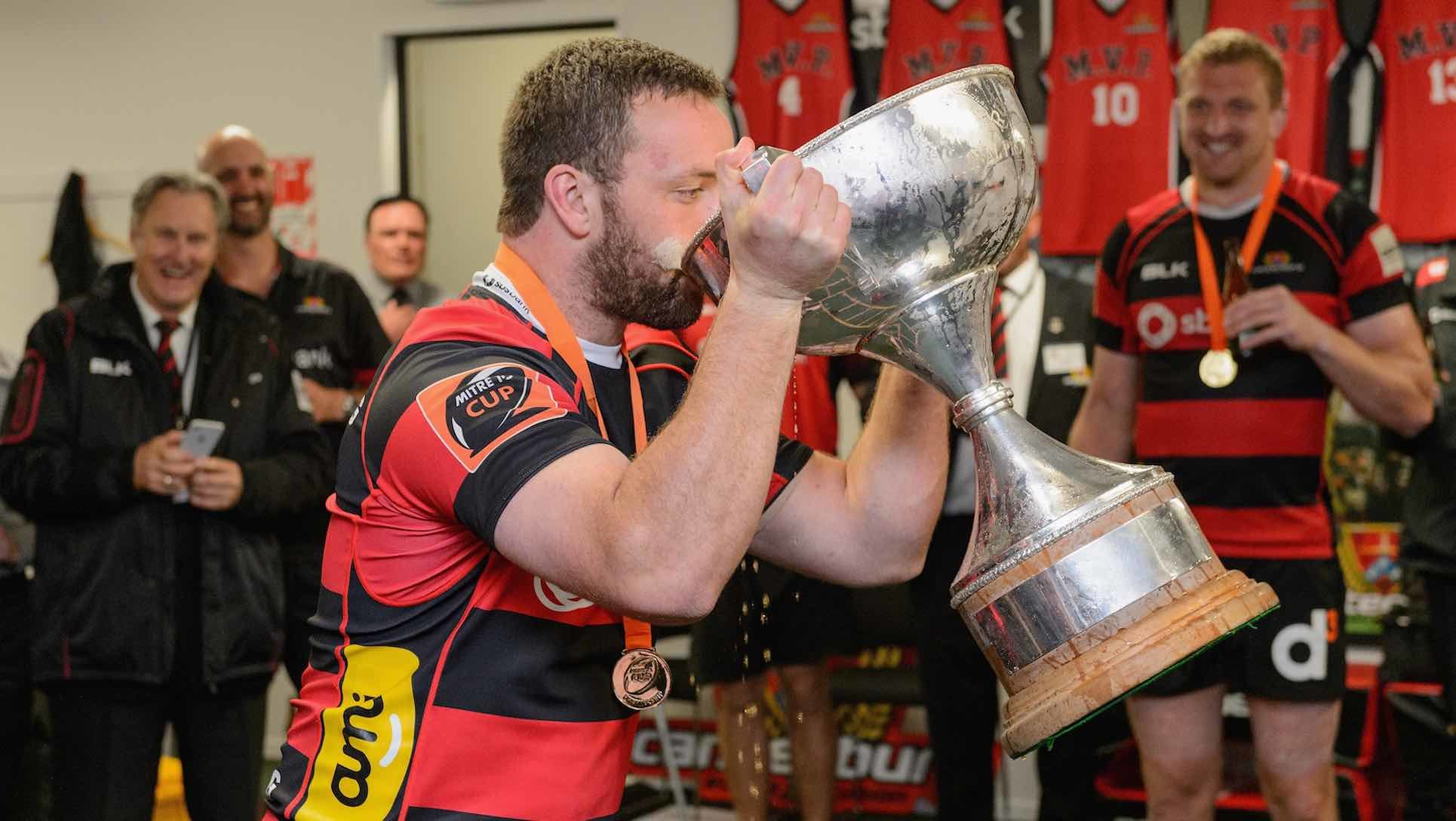We have a strange, nostalgic view of the Mitre 10 Cup here in NZ. Some of it makes sense – that the competition showcases some of the best attacking rugby you’ll see anywhere, and some doesn’t – that it’s a vibrant and open contest, where the underdog has their day.
Wellington and Canterbury proved both that over the weekend respectively, in a couple of finals that couldn’t have been more different.
I was at Westpac Stadium on Friday night. Disclaimer: I’m a born and bred Wellingtonian, so I’d made the journey down to catch a rare glimpse of my home province actually winning something before my own eyes.
It hasn’t been a great few years for the capital’s domestic team; in 2014 the side was relegated for the first time ever after losing 10 out of 11 games. Ironically, the coach that year was Chris Boyd, who went on to guide the Hurricanes to two Super Rugby finals and a title. Since the they’d made it to the playoffs of the second division Championship every year and lost. But that was nothing new for those of us cursed enough to be born in Wellington – since memorably winning the old NPC First Division in 2000, it’d been seven finals played, seven finals lost.
But this had to be the night to break the curse. Wellington had scored four tries or more in their last 18 matches in a row, had demolished Canterbury in a crossover match 60-14 and also hammered eventual Ranfurly Shield holders Taranaki. Plus, they’d unearthed the find of the season: hooker Asafo Aumua, who ironically couldn’t play in the final due to being picked for the All Blacks. They’d also handily beaten their opponents in the Championship final, Bay of Plenty, earlier in the season.
However, nothing about supporting Wellington is easy. From the Antarctic-like conditions that spectators are often forced to watch in, to the devastating false dawn final losses.
Usually they just choke, giving up a handy lead and then not having enough determination to claw it back. It seemed to be going to script as BOP scored the first try, but no one watching would have ever guessed that there would be 15 more to come – especially after the first half was more or less a kick-happy, tight 40 minutes.
All hell broke loose in the second half, with the two sides locked at 40-all at full time. Wellington’s victory was only assured after 20 minutes of extra time, in which the teams managed to score four more tries between them.
While that match was a testament to the often high-scoring and attacking minded nature of New Zealand rugby, the Premiership final the following night was evidence of the other trait of the game down here: forward planning.
It’s important to understand one thing about when you watch Canterbury and Tasman play. If you think that you’re in fact seeing a Crusaders inter-squad hit out, you’re right. Both influential first fives, Richie Mo’unga and Mitch Hunt, are on the Crusaders books for the foreseeable future, while the rest of the teams make up the bulk of the Super franchise’s emerging talent. They both played in the corresponding fixture last year, and the result was more or less the same. The Crusaders then going on to win Super Rugby earlier this year is no coincidence.
Mo’unga ran the show in a one-sided final, which Tasman were only ever in when Levi Aumua (brother of Asafo) scored early for the Makos. The home side cantered away to a 35-13 regulation win, which was entirely expected for anyone with even the vaguest knowledge of rugby in NZ.
It was Canterbury’s ninth Mitre 10 Cup title in 10 years. Before their period of dominance, when the competition was the old National Provincial Championship, former powerhouses Auckland managed 16 titles. It’s only ever been won by a union not based in NZ’s main cities five times, and three of those were pre-1980 – making it, on paper anyway, the least competitive domestic rugby competition in any major rugby playing nation.
It also has the ignominy of being held in such low regard by the All Black coaching staff that they didn’t think twice about taking the competition’s best player and putting him on a flight to London while the final he helped his team get to was being played.
But still, it’s held up by Kiwis as one of the main reasons the game remains so strong here. It is, undeniably, a breeding ground for talent and chance to show off some outrageous skill. All you have to do for proof of that is have a look at Joe Webber’s two stunning tries against Wellington on Friday night, or Mo’unga’s double against Tasman.
So, once again the strange juxtaposition of unpredictability and predictability, flair and resolve, and stars and no names were all on show in the final week of the Mitre 10 Cup. While, in Canterbury’s case it’s business as usual in the final, they can also look back on a season where they were somehow thumped by a team that wasn’t even in their division. Meanwhile Wellington managed to buck the trend of losing finals, even though they had to work an overtime shift to get it.












































































